Bitcoin post-halving run may reach $130K by September 2025
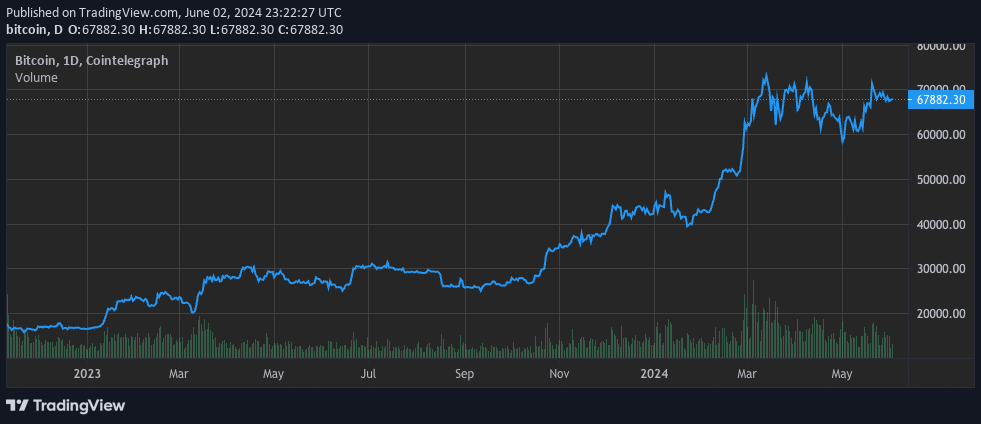
Trader Peter Brandt says Bitcoin’s bull run is following similar past post-halving cycles, and if it holds it could reach $130,000 by late next year.

Bitcoin (BTC) could reach a cycle peak of $130,000 to $150,000 between late August to early September if it follows the trajectory of previous post-halving bull markets, according to crypto trader Peter Brandt.
The recently-passed April 20 Bitcoin halving is a coded-in event about every four years that slashes mining rewards by 50%, and halving dates have “represented almost perfect symmetry within past bull market cycles,” Brandt wrote in a June 2 report.
He claimed historically, the Bitcoin halving date has sat almost in the middle of when a bull market starts and when it reaches its peak.
The last Bitcoin bull market started about 16 months before the halving on May 11, 2020, and the cycle ended about 18 months after that, according to Brandt’s analysis.
Brandt noted that the two previous halvings — on July 9, 2016 and Nov. 28, 2012 — followed a similar pattern.
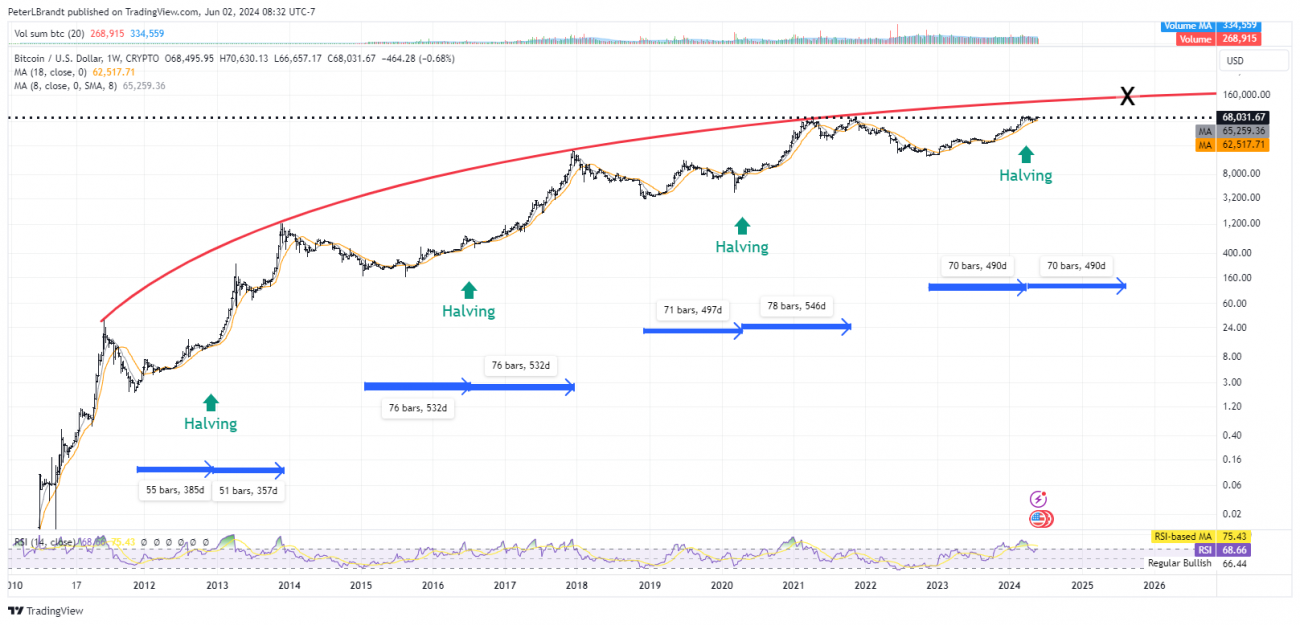
“If this sequence continues, the next bull market cycle high should occur in late Aug/early Sep 2025,” he wrote.
Brandt added that “no method of analysis is fool-proof” when it comes to guessing Bitcoin’s cycle high, but past highs have followed a similar growth pattern and if it continues he puts a bull market high “in the $130,000 to $150,000 range.”
Chance Bitcoin has already topped
Brandt’s analysis marks Dec. 17, 2022, as the start of the current bull market. BTC traded around $16,800 then, but it has since gained over 300% to trade at $67,882, per Cointelegraph Markets Pro.

Related: Why is Bitcoin stagnated despite $2B in spot ETF inflows?
Bitcoin is down from its March 14 all-time high of $73,679, however, and Brandt believes there’s a 25% chance that Bitcoin has already hit a bull market top as each bull cycle’s gains are dropping relative to the one prior.
If BTC fails to make a new all-time high and sinks below $55,000, Brandt says he’d raise the probability that the cryptocurrency is experiencing an “exponential decay.”

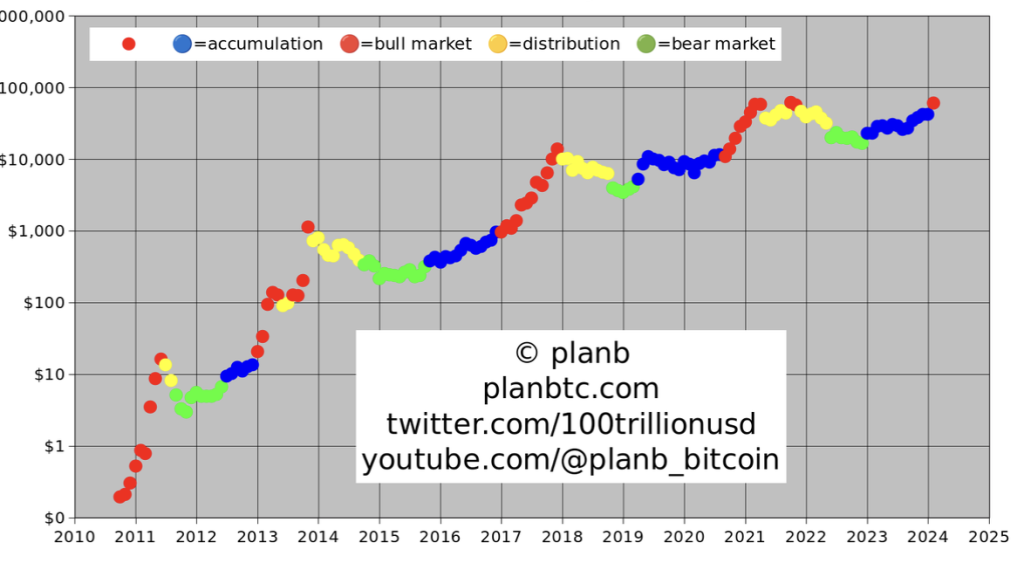
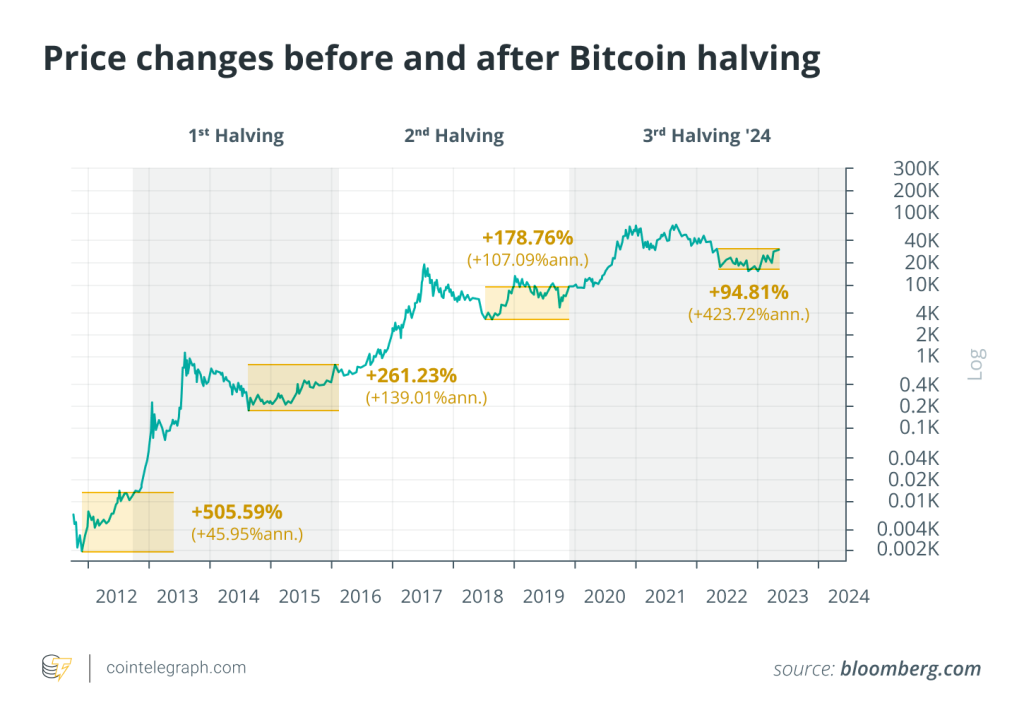
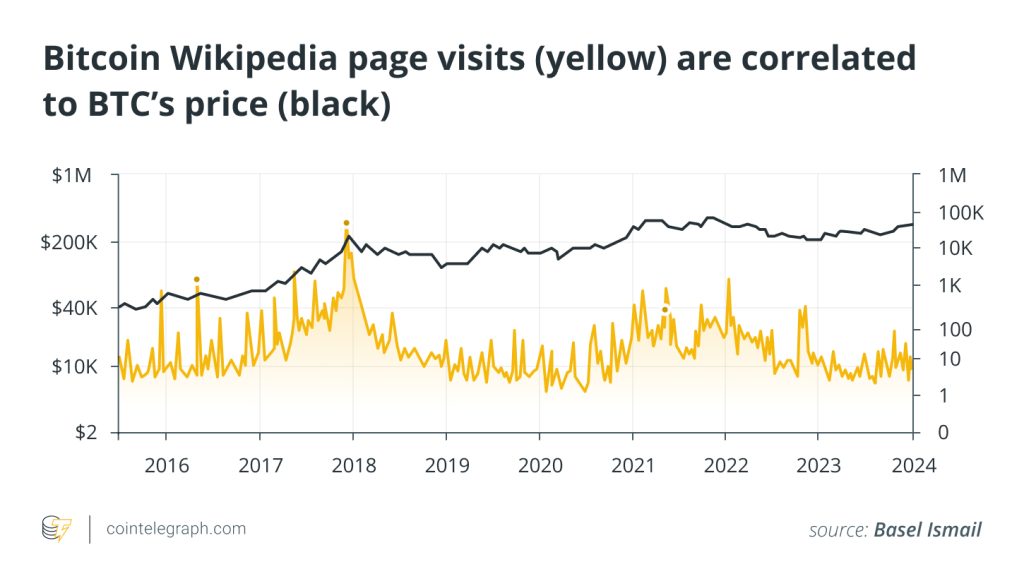
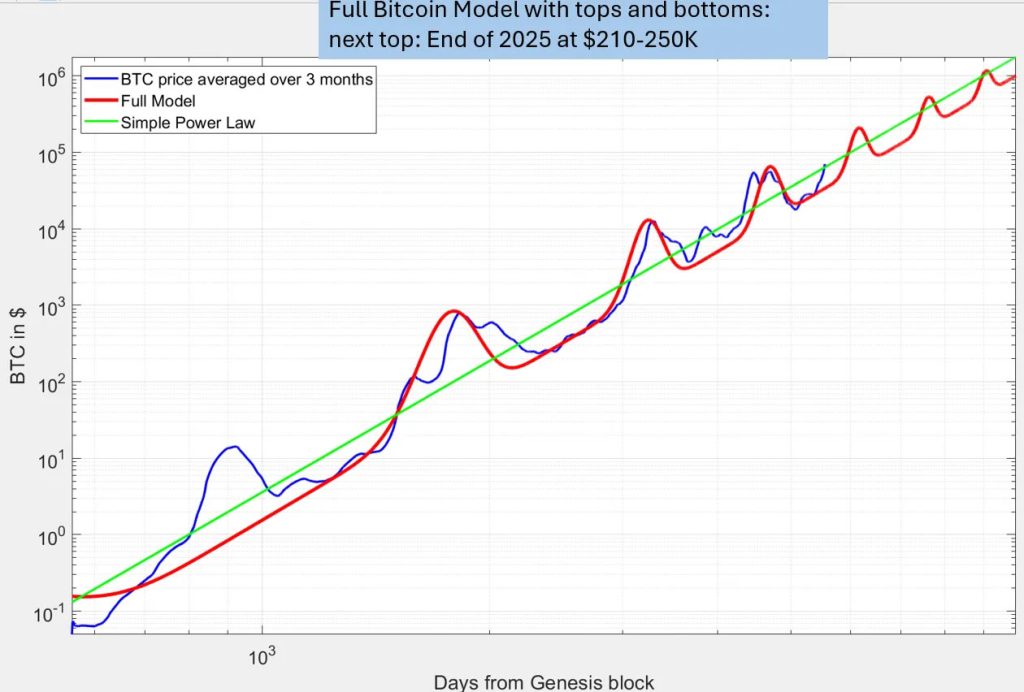
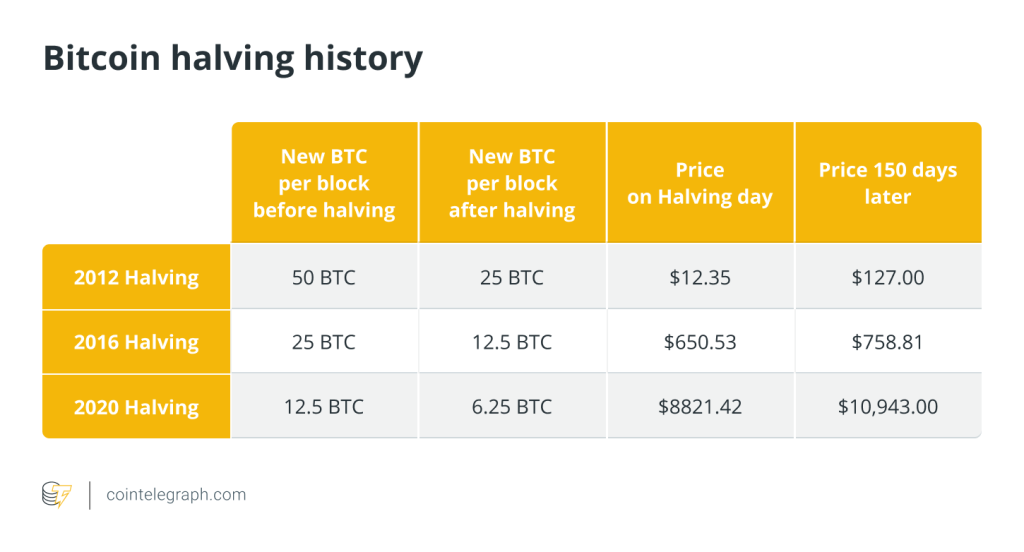
Responses